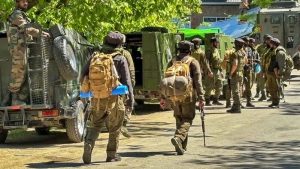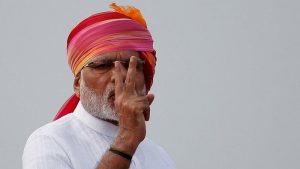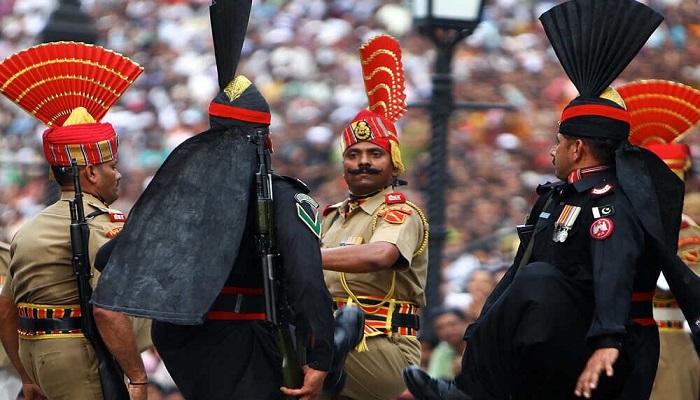PNN – The dangerous consequences of the outbreak of conflict in the subcontinent and the South Asian region for international peace and stability have led the Islamic Republic of Iran, as a friend of both Pakistan and India, to declare its readiness to mediate in the recent Kashmir tension.
A week ago, the Pahalgam district of Indian-controlled Kashmir was the scene of a terrorist attack that killed and injured dozens of people. The tragic incident not only sent a wave of grief across India, but also reignited the long-standing tensions between India and Pakistan.
Gunmen opened fire on a group of tourists in the tourist area of Palgham, about 90 kilometers from Srinagar in Indian Kashmir, killing at least 26 people on Tuesday evening. Indian officials described the incident as a terrorist attack and alleged Pakistani involvement in the attack.
New Delhi accuses Islamabad of directly or indirectly supporting these acts of violence, citing a history of similar attacks and the existence of safe havens for terrorists across the border.
The attack came at a time when relations between the two nuclear-armed South Asian powers have been tense and fragile in recent years. Periodic terrorist attacks on Indian soil, especially in the Kashmir region, have heightened tensions and posed serious challenges to scattered efforts to establish peace and stability in the region.
The Roots of India-Pakistan Disputes in Kashmir
The most important difference between the two countries, which is considered the root cause of the current crises, is the Kashmir issue, which dates back to the partition of the subcontinent in 1947. At that time, princely states, including Kashmir, had the option of joining either India or Pakistan. The Hindu ruler of Kashmir, Hari Singh, initially showed no interest in joining either country, but after an attack by Pakistani-backed tribes, he asked India for military assistance in exchange for signing the Instrument of Accession to India.

Pakistan did not recognize this accession due to the Muslim majority population of Kashmir and its territorial claims to the region. This led to the First Indo-Pakistani War in 1947–48, which divided Kashmir into two parts, controlled by India (Jammu and Kashmir and Ladakh) and Pakistan (Azad Kashmir and Gilgit-Baltistan).
Since then, this unresolved issue has been the main cause of numerous tensions and conflicts between the two countries and continues to remain a crisis center in South Asia.
India-Pakistan relations must always be analyzed and dissected under the influence of the Kashmir issue, an issue that has so far prevented the establishment of peace and stability in the relations between the two countries and the establishment of lasting relations between the two sides. In the view of many observers and analysts, India-Pakistan relations will not improve until the Kashmir crisis is resolved.
Escalation of military tensions
Since the terrorist attack in Pahalgam, Indian and Pakistani border forces have been clashing and exchanging fire. India tested a long-range missile, prompting a Pakistani response and warning of retaliation.
On the other hand, New Delhi has suspended the water agreement between the two countries and stopped the flow of water from the Indus River to Pakistan. In return, Pakistan has closed its airspace to Indian aircraft, and hundreds of flights in New Delhi have been grounded or forced to change their routes in recent days. Xinhua News Agency also reported that in recent days, Pakistani forces have shot down two Indian spy quadcopters in the Line of Control area.
At the same time, statements and threats from both sides indicate that the level of military tension is moving from border exchanges of fire to a broader military conflict, such as airstrikes and artillery.

Continuing his stance on Wednesday, Modi announced that the Indian armed forces have been given the necessary orders to determine the targets and timing of the response to this terrorist attack, and it appears that India is on the verge of military action against Pakistan.
Although Pakistan has denied any involvement in the attack and has asked India for evidence to support its claims, Indian public opinion is very angry, and this issue has put the Indian government under severe pressure.
Referring to India’s military movements in recent days, the Guardian wrote that the Indian Navy, by firing several missiles after the Pahalgam terrorist attack, sought to demonstrate its ability to conduct long-range precision strikes in the wake of the recent terrorist attack, and this has increased the possibility of Indian military action.
Conventional War and the Warning of Nuclear Conflict
India and Pakistan are two nuclear powers with multiple nuclear warheads, so any military conflict between these two neighbors with conventional weapons could lead to a narrow path to the use of nuclear weapons. It is because of this situation that former US President Bill Clinton and many international observers have called Kashmir the most dangerous region in the world.
Pakistan’s Transport Minister Hanif Abbasi has warned after India’s military threats that “Pakistan’s nuclear arsenal has 130 warheads that are not being maintained as models. Ballistic missiles carrying warheads are aimed directly at India!”
According to the Guardian, Hanif Abbasi’s remarks have intensified concerns that the two nuclear-armed neighbors are heading towards a wider confrontation.

